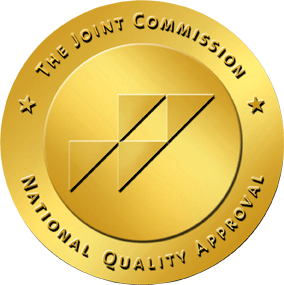The Power of Group Therapy in Miami’s Partial Hospitalization Programs (PHPs)

Partial Hospitalization Programs (PHPs) are increasingly recognized as pivotal components of modern mental health treatment. They bridge the gap between inpatient care (where individuals reside in a treatment facility 24/7) and standard outpatient therapy (where sessions might occur once a week or less). One of the core features that sets PHP apart is group therapy. In Miami, where diverse communities thrive, group therapy can be compelling, offering peer support, shared experiences, and collective motivation for personal growth.
This blog post will explore the role of group therapy in a partial hospitalization context, focusing on why it matters, how it benefits individuals in recovery, and how you can leverage these insights to find the best possible PHP Miami services. We’ll also discuss how group therapy for recovery in Miami can be tailored to meet the unique needs of different individuals and conditions.
What Is a Partial Hospitalization Program?
A Partial Hospitalization Program (PHP) is designed for individuals who need intensive mental health treatment but do not require round-the-clock supervision in a hospital setting. Typically, patients in a PHP attend structured programs during the day, including individual therapy, medication management, and various therapeutic activities. In the evening, they return home or to a sober living environment.
At the core of these programs, participants gain access to resources such as psychiatric evaluations, case management, and diverse therapy modalities. One key modality is group therapy, where peers come together under the guidance of a licensed professional to share experiences, offer mutual support, and build skills to cope with day-to-day challenges.
The Importance of Group Therapy in Mental Health Treatment
Group therapy has been a cornerstone of mental health treatment for decades because it creates a sense of belonging and normalizes personal struggles. When people realize they are not alone in their challenges, the stigma often associated with mental illness begins to melt away. This shared environment can significantly enhance motivation and accountability, fueling individual progress.
Group therapy can offer even more profound benefits in Miami, a city known for its multicultural backdrop. Diverse cultural insights enrich discussions, fostering empathy and a deeper understanding of various perspectives. Licensed therapists leading these groups ensure that each individual’s voice is heard and guide talks to highlight mutual learning opportunities.
Group Therapy in a PHP Setting: Why It Works
Structured and Supportive Environment
A PHP Miami typically provides a structured setting where participants follow a schedule of therapies and activities. Group therapy often becomes one of the highlights of this schedule. The predictability of meeting at the same time each day (or multiple times per week) helps cultivate a sense of stability, something many individuals in recovery desperately need.
Peer Accountability
One of the most significant advantages of group therapy is peer accountability. It’s one thing to discuss goals and progress with a clinician; it’s another to be held accountable by peers who share similar journeys. Hearing each other’s stories can inspire change, reinforce positive behaviors, and help identify self-sabotaging patterns.
Diverse Perspectives
Group therapy brings together individuals from different backgrounds, offering various perspectives. This diversity can be incredibly impactful in a mental health treatment setting. It helps you see beyond your views, challenge long-standing assumptions, and learn new coping techniques. For instance, one participant might share how journaling helps manage anxiety, while another might share a new relaxation strategy or self-care habit.
Real-Time Skill Practice
Group therapy isn’t just talking; it’s also an opportunity to practice new behaviors in real-time. Conflict resolution, empathy, and active listening are some of the skills honed during group sessions. This real-life practice can be invaluable as patients transition from a partial hospitalization program to everyday life.
Key PHP Benefits Miami Residents Should Know
When considering the PHP Benefits Miami has to offer, group therapy typically tops the list. Below are some of the primary advantages you can expect:
- Intensive Focus: A PHP provides more concentrated therapy than a standard outpatient program, addressing challenges promptly.
- Community Building: Group therapy fosters a sense of community, which is crucial for individuals who often feel isolated due to mental health issues.
- Personalized Feedback: Therapists and peers offer immediate, customized feedback to expedite healing.
- Safe Space for Vulnerability: Sharing personal struggles in a supportive environment can be liberating. This openness often accelerates individual breakthroughs.
- Gradual Reintegration: Because PHP participants typically live at home, they can practice newly learned skills in real-world scenarios and then discuss triumphs and setbacks in group sessions.
- Cost-Effectiveness: Compared to inpatient treatment, partial hospitalization can be more affordable while delivering high-quality care.
How Group Therapy Facilitates Recovery
Enhancing Motivation
Seeing others face similar struggles and make tangible progress can be incredibly motivating. Even a tiny success shared by one participant can ripple through the group, instilling hope in others who might be stuck. This collective encouragement sets a positive tone that keeps members invested in their mental health treatment.
Reducing Isolation
Isolation is a common factor that exacerbates mental health challenges. Group therapy in Miami is particularly beneficial for breaking down this barrier. By connecting with others, participants start to feel less alone in their struggles, which can reduce feelings of hopelessness and depression.
Normalizing Mental Health Challenges
When problems are kept private, they often grow in magnitude. Speaking about them openly in a group setting can normalize these issues. Hearing that someone else has similar fears or has experienced a similar trauma can alleviate shame and embarrassment, two powerful emotions that can hinder recovery.
Practicing Communication Skills
Group therapy sessions require individuals to speak, listen, and respond thoughtfully. These seemingly simple interactions are crucial life skills. Participants learn how to articulate their feelings, validate the emotions of others, and respond empathetically in potentially tense or emotional settings.
Group Therapy for Recovery Miami: Local Factors to Consider
Miami boasts a rich blend of cultures, languages, and life experiences. This dynamic environment can significantly influence how group therapy unfolds. For instance:
- Language Options: Many clinics offer group therapy in English and Spanish, catering to Miami’s bilingual population.
- Cultural Relevance: Therapists often tailor group discussions to include cultural nuances—like family dynamics in Latinx communities or the unique stressors faced by immigrants.
- Community Resources: Miami’s vibrant mental health community means numerous support groups and aftercare programs can complement a PHP’s group therapy sessions.
Choosing a Group Therapy Miami program that understands and respects your cultural background makes you more likely to feel comfortable, understood, and supported.
Components of an Effective Group Therapy Session
Clear Objectives
Every session should have a clear objective—learning a new coping mechanism, exploring a specific emotional challenge, or debriefing on the week’s successes and struggles. Clarity ensures that participants know what to expect and can prepare accordingly.
Skilled Facilitation
A trained professional guides the session, ensuring that everyone has the opportunity to speak and that discussions remain respectful and on-topic. This facilitator is crucial for managing group dynamics and turning conflicts or disagreements into teachable moments.
Confidentiality
What happens in group therapy stays in group therapy. Confidentiality is paramount to building trust. Knowing you can speak freely without repercussions encourages more profound, honest conversations.
Balanced Participation
Some individuals may naturally dominate the discussion, while others hesitate to speak. Skilled facilitators aim for a balanced exchange so everyone receives attention and support.
Integrating Group Therapy into Mental Health Treatment
Group therapy doesn’t exist in a vacuum within a partial hospitalization program. It often works alongside:
- Individual Therapy offers a private space to explore sensitive issues or discuss group therapy insights on a deeper level.
- Medication Management: Psychiatrists or addiction-medicine specialists may adjust medications based on progress observed in both group and individual settings.
- Family Therapy: Family dynamics can influence mental health. Including loved ones in therapy can strengthen the support system at home.
- Holistic Approaches: Some PHPs incorporate mindfulness, yoga, or nutritional counseling to address the body, mind, and spirit collectively.
This multimodal approach underscores the importance of group therapy. The collective insights gained from peers often reinforce the lessons learned in individual sessions, fostering a well-rounded mental health treatment experience.
Who Can Benefit from Group Therapy in a PHP?
Individuals with Mood Disorders
Conditions like depression or bipolar disorder often isolate individuals. Group therapy creates a support system that can lessen feelings of loneliness and despair.
Those Facing Substance Abuse Issues
Group therapy for recovery in Miami can be instrumental for individuals battling substance abuse. Hearing success stories from others in recovery offers hope, while group accountability minimizes relapse risks.
People with Anxiety
Sharing anxieties in a safe group setting can demystify fears. Participants often learn coping strategies from each other, such as breathing exercises, grounding techniques, or cognitive reframing methods that have worked for their peers.
Trauma Survivors
Group therapy can create a supportive space for trauma survivors to share experiences and coping strategies. While individual therapy is critical for trauma-focused interventions, the group dynamic often reduces the stigma and isolation trauma survivors feel.
Those Transitioning from Inpatient Care
If you’re coming out of an inpatient program, a PHP provides a structured “step down.” You can apply skills learned in the hospital while receiving frequent therapy and monitoring. The group context can ease the adjustment into everyday life, as you’ll have consistent support.
Measuring the Success of Group Therapy in a PHP
Given its subjective nature, one challenge in mental health treatment is measuring success. However, there are several indicators that group therapy is working:
- Behavioral Changes: Participants can better manage daily tasks, maintain relationships, or hold down jobs.
- Emotional Stability: Mood swings become less frequent or intense, and coping strategies become more effective.
- Reduced Hospitalizations: One indicator of successful group therapy in a PHP is fewer hospital readmissions over time.
- Positive Peer Feedback: Other group members notice progress and offer positive reinforcement.
Outcomes can vary from person to person, but most partial hospitalization programs track progress through regular assessments. For instance, participants might fill out mood and behavior questionnaires at the start and end of each phase, giving clinicians concrete data to monitor improvements.
Overcoming Common Misconceptions About Group Therapy
Despite its many advantages, some individuals remain skeptical about group therapy. Let’s address a few misconceptions:
- Fear of Judgment: Many worry about being judged by peers. Group therapy is a safe and confidential environment where mutual respect is paramount.
- Comparisons: People might compare their progress to others. Facilitators emphasize that recovery is not a race; each person’s path is unique.
- Lack of Personal Attention: Some believe individual therapy is more effective than group therapy because it provides more personal attention. In truth, group therapy complements individual sessions, often accelerating progress through shared insights.
Understanding these misconceptions can help you decide whether a PHP with strong group therapy components is proper.
Conclusion and Next Steps
A partial hospitalization program that emphasizes group therapy can be a game-changer for individuals seeking intensive, structured mental health treatment without an entire inpatient stay. The supportive environment, peer accountability, and real-time skill practice make group therapy indispensable for lasting change. In a city as diverse as Miami, tapping into collective experiences through group therapy can enrich your recovery journey and provide a robust support network.
Suppose you’re considering a PHP Miami option or simply want to explore group therapy for recovery in Miami. In that case, finding a program led by licensed professionals who understand the local community’s unique needs is crucial. By doing so, you’ll set yourself up for the best possible outcome—one where you can transition smoothly from a structured treatment environment to a fulfilling daily life.
Ready to take the next step? Call Improving Lives Now at 305-270-5305 to learn more about their Partial Hospitalization Program, group therapy sessions, and how they can help you achieve a healthier, more balanced future.
FAQ Section
1. What is a Partial Hospitalization Program (PHP)?
A Partial Hospitalization Program provides intensive treatment for those who need more support than standard outpatient care but do not require 24-hour supervision. Participants attend structured therapy sessions during the day and return home in the evening.
2. How does group therapy differ from individual therapy?
Group therapy involves multiple participants sharing experiences, offering support, and learning from each other. Individual therapy is a one-on-one session focusing solely on your personal needs. Both can be integral parts of a comprehensive mental health treatment plan.
3. Can group therapy help with anxiety and depression?
Yes. Group therapy can be highly effective for mood disorders like anxiety and depression. Sharing experiences in a supportive environment helps normalize symptoms and provides coping strategies that may not emerge in individual therapy alone.
4. Is group therapy in a PHP covered by insurance?
Many insurance plans, including Medicare and Medicaid, cover group therapy within a PHP. To verify coverage and any out-of-pocket costs, consult with your provider or contact the facility directly.
5. How do I find the proper PHP in Miami for group therapy?
Look for programs with licensed professionals, diverse therapy offerings (including group, individual, and family sessions), and a strong track record of success. You can also check reviews, seek recommendations, or consult healthcare professionals for referrals.





